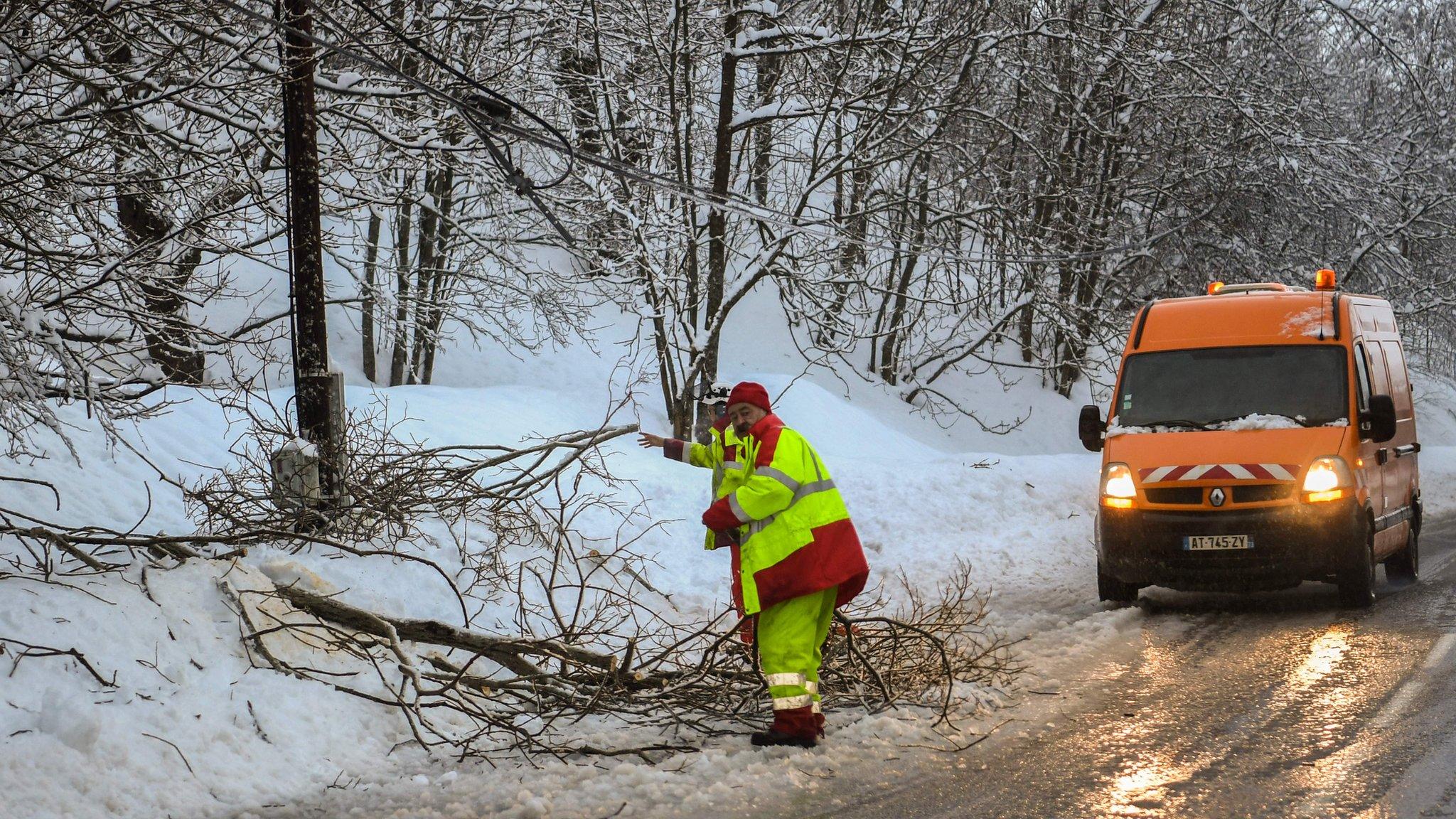Moscow's 2017 December was its 'darkest' on record
- Published
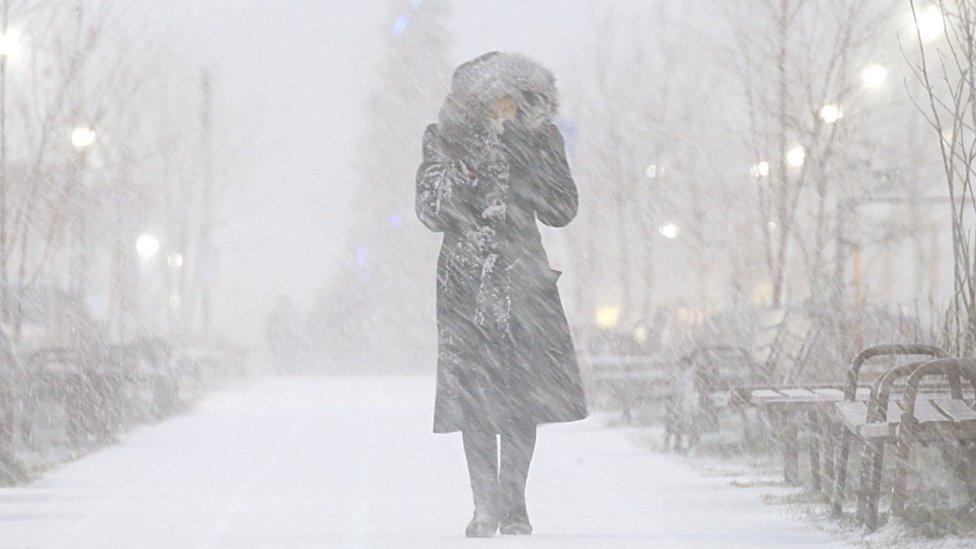
Moscow's dark and snowy winter continues
December set the record for the least amount of sunshine seen in Moscow, Russian weather experts say.
"The sun didn't come out even once for the entire month," said the weather website Meteonovosti.
According to Russia's main weather centre, the sun did shine for six minutes. But normally Muscovites get dozens of hours of December sunshine.
Russian winters are famously freezing, but this week the cold in Yakutia, in the far east, dipped below -60C (-76F).
It is about -7C in Moscow.
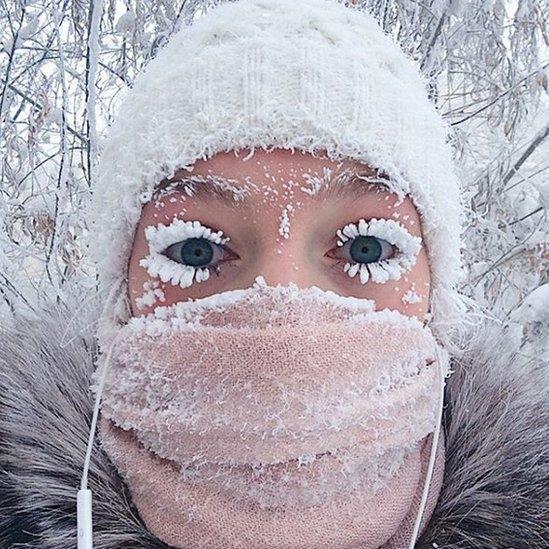
Anastasia Gruzdeva in frozen Yakutia: Her photo was widely shared on social media
Yakutia - a remote region also known as the Sakha Republic - is historically the coldest part of Russia.
"Even for the Sakha Republic, famous for its harsh cold, this temperature is abnormal," Meteonovosti said.
On Tuesday, the temperature remained below -50C across the vast region, whose capital Yakutsk lies 4,900km (3,045 miles) east of Moscow.
Russian children are usually kept indoors and schools are shut when the cold plunges below -50C.
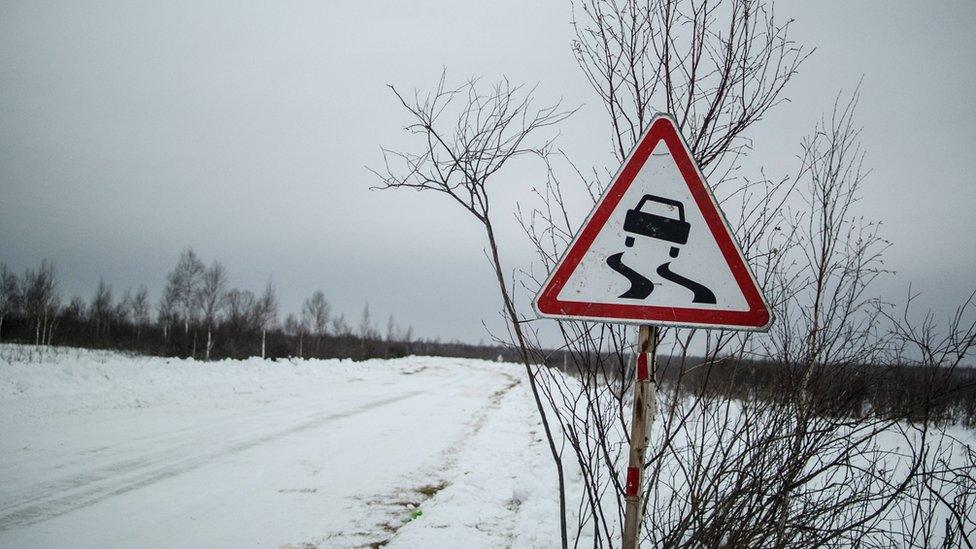
Siberia is known for bitterly cold winters and scorching summers
Roman Vilfand, head of the Russian Meteorological Centre, attributed Moscow's exceptionally overcast weather in December to big cyclonic air masses, which had moved in from the Atlantic.
Moscow's previous record for December darkness was in 2000, when the capital got just three hours with the sun breaking through the cloud.
Russia's hot tips for cold weather:
Don't drink spirits - drunkenness causes great heat loss
Wear loose clothing to keep blood circulation normal
If you feel frost-bitten on a walk, find any warm place - a shop, cafe, doorway - and warm up
Don't remove your boots if your feet are frozen - they'll swell up and you won't be able to get your boots on again. Get to a warm place as quickly as possible. You could shove your frozen hands in your armpits to warm them up
If your car breaks down far away from habitation, you should stay in your car and phone for help or wait for another vehicle to come along the road
Avoid the wind, as it increases the risk of freezing
When children are outdoors they should return to the warmth every 15-20 minutes.
Source: Russian Emergencies Ministry
- Published24 November 2017
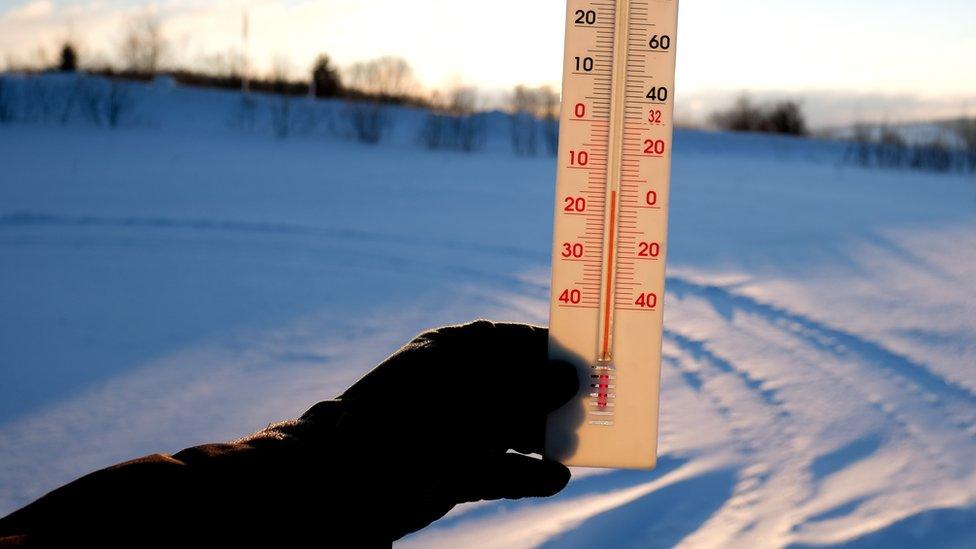
- Published14 November 2017
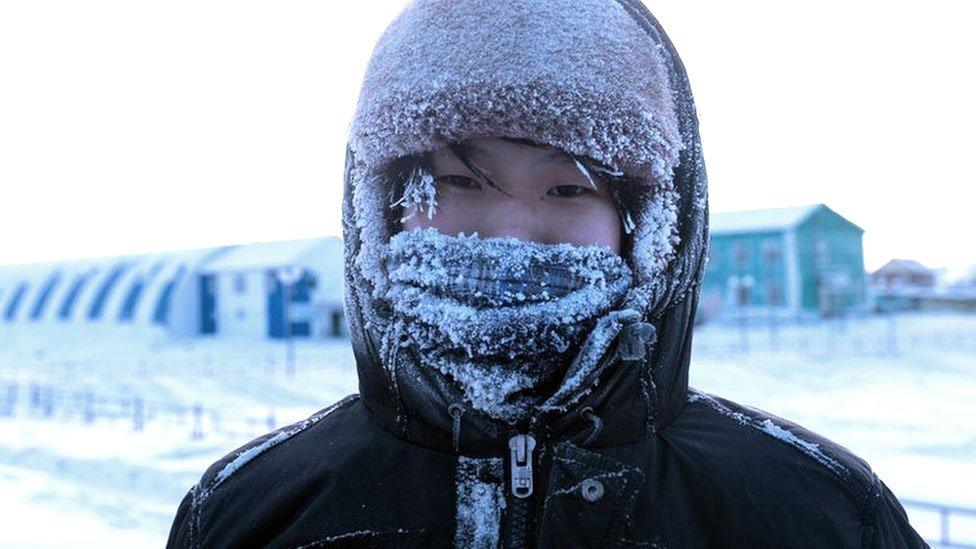
- Published5 January 2018
